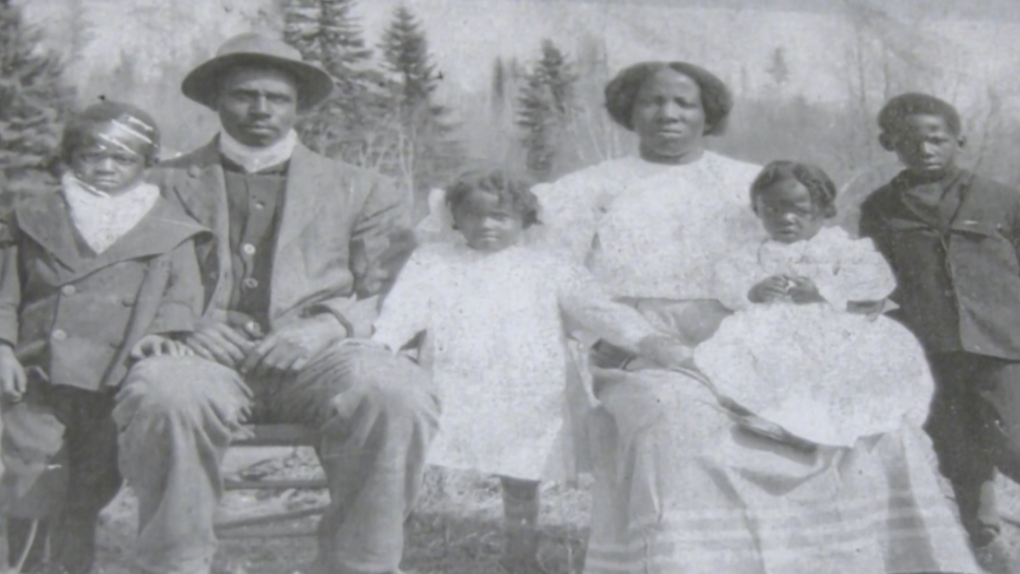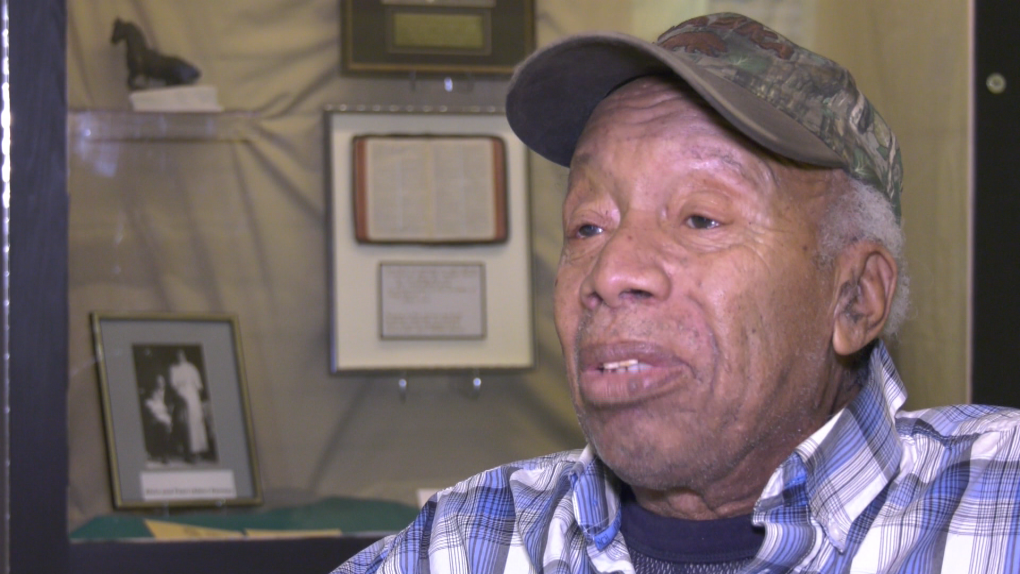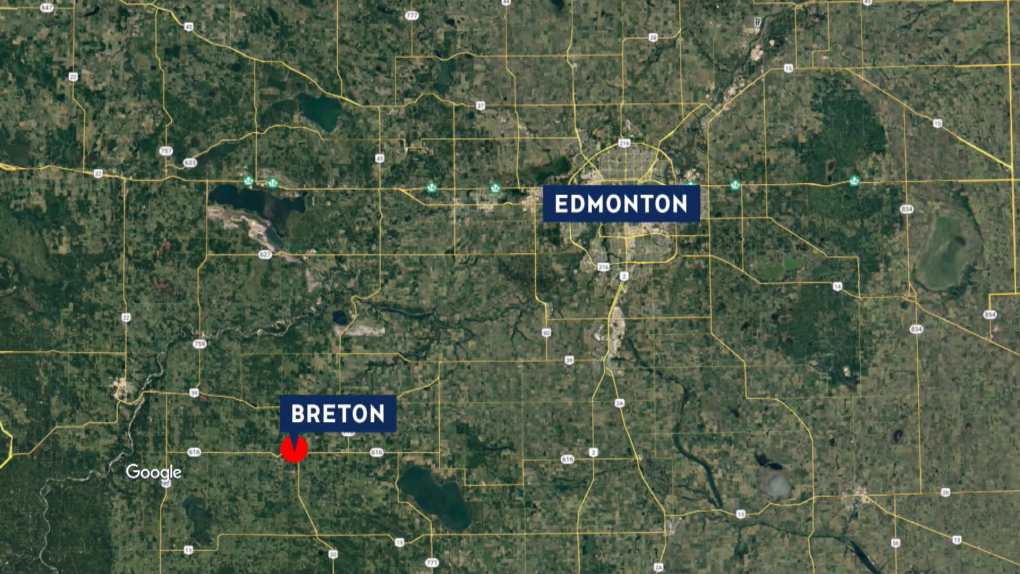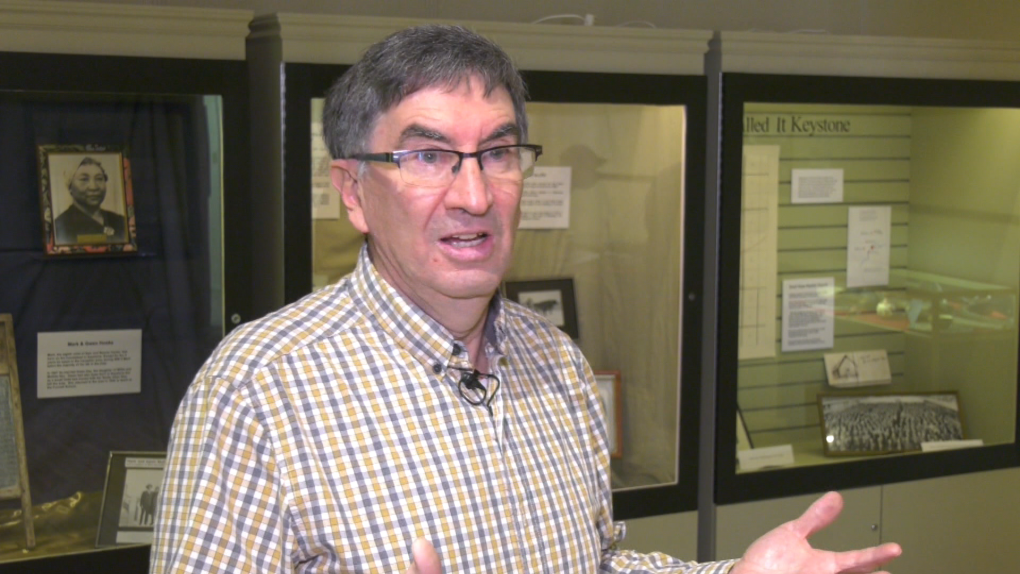'The last one': 85-year-old African American still living in rural Alta. where family settled 7 decades ago
Around 1911, five towns in Alberta were the destinations for African American settlers, primarily from Oklahoma.
Many of the settlers came to Canada with hopes that racial segregation and discrimination wouldn’t follow them.
“The government wanted to shut them down. They didn't want anymore of them people up here,” Vant Hayes says he remembers hearing from others.
Hayes, now 85, was a part of one of those families who settled in what was then called Keystone. Today, that area is known as Breton, Alta., a small town about an hour south of Edmonton.
 Vant Hayes was eight years old when his mother and nine siblings travelled from Kelowna, B.C., to settle in what would become Breton, Alta.
Vant Hayes was eight years old when his mother and nine siblings travelled from Kelowna, B.C., to settle in what would become Breton, Alta.
The area promised as a reprieve wasn’t free from racism; Hayes can recall multiple incidents over the years.
“One guy, you know, he figured he was smart. ‘How did a man like you ever get up that high?’ I said I had to work twice as hard as anybody else to get where I'm at,” Hayes told CTV News Edmonton.
 Vant Hayes, now 85, believes he is the last of a wave of Black families to settle in what is now known as Breton, Alta., in the 1940s.
Vant Hayes, now 85, believes he is the last of a wave of Black families to settle in what is now known as Breton, Alta., in the 1940s.
With the passage of time, many of those experiences changed as the town grew and residents became more accepting.
“It was like any other town... Most of the people (were kind) but there were some that were prejudiced,” Hayes said.
 Breton, Alta., once known as Keystone, is a small town about an hour south of Edmonton.
Breton, Alta., once known as Keystone, is a small town about an hour south of Edmonton.
Every February, the Breton Museum honours those families who settled in the area by telling their history and hardships.
“It’s a story about migration and the challenges that they found here,” Allan Goodard, the manager and curator of the Breton Museum said.
“I liken it back to when the Syrian refugees were coming into Canada and the resistance that they were meeting from the general population to some degree. There’s common threads 100 years apart.”
 Allan Goodard, the manager and curator of the Breton Museum, says the museum has found Black settlers to the area in the 1940s were were instrumental in developing a church, school and a cemetery in the area.
Allan Goodard, the manager and curator of the Breton Museum, says the museum has found Black settlers to the area in the 1940s were were instrumental in developing a church, school and a cemetery in the area.
Through its research, the museum has found the settlers were instrumental in developing a church, school and a cemetery in the area.
“We have contact with some of the descendants of some of the families and they may be in Edmonton. Other ones we’ve lost all contact with,” Goodard said.
Hayes' family have all moved out of the area or passed away.
 Vant Hayes was eight years old when his mother and nine siblings travelled from Kelowna, B.C., to settle in what would become Breton, Alta.
Vant Hayes was eight years old when his mother and nine siblings travelled from Kelowna, B.C., to settle in what would become Breton, Alta.
"I'm the last one," he says, referring not only to his family but of all the African American settlers who landed in the area.
“You'd see a lot of coloured people but no more. I'm the only one and sometimes they'll ask, ‘Don't you feel lonesome?’ and I say no.”
Hayes carries on the legacy of his family and the other settlers of Breton; he still cares for his cattle and lives with his wife on their farm 15 miles north of the town.
CTVNews.ca Top Stories

BREAKING Pat King found guilty of mischief for role in 'Freedom Convoy'
Pat King, one of the most prominent figures of the 2022 'Freedom Convoy' in Ottawa, has been found guilty on five counts including mischief and disobeying a court order.
BREAKING Quebec man, 81, gets prison sentence after admitting to killing wife with Alzheimer's disease
An 81-year-old Quebec man has been sentenced to prison after admitting to killing his wife with Alzheimer's disease.
Canada's tax relief plan: Who gets a cheque?
The Canadian government has unveiled its plans for a sweeping GST/HST pause on select items during the holiday period. The day after the announcement, questions remain on how the whole thing will work.
Canada issues travel warning after 6 people die from tainted alcohol in Laos
The Canadian government is warning travellers following the deaths of at least six people in the mass poisoning of foreign tourists in Laos after drinking tainted alcohol.
Unruly passenger duct-taped after trying to open a plane's door mid-flight
An assertive group of cross-country travellers pinned and duct-taped an unruly passenger mid-flight, after he allegedly tried to open a plane door at 30,000 feet.
Canada's new income tax brackets in 2025: What you need to know
The Canada Revenue Agency has released updated federal income tax brackets for 2025, reflecting adjustments for inflation. Here’s the breakdown.
Matt Gaetz says he's not returning to U.S. Congress next year
Former Florida Rep. Matt Gaetz, who withdrew from consideration as U.S. president-elect Donald Trump's pick for attorney general on Thursday, said Friday he will not be returning to U.S. Congress next year.
Young man arrested after 'disturbing' sexual notes left for women, B.C. RCMP say
A young man has been arrested after multiple women reported receiving “disturbing” sexual notes – or in some cases underwear – in the same Burnaby, B.C., neighbourhood over recent months, the RCMP announced Thursday.
Enslaved on OnlyFans: Women recount torment and sexual servitude
OnlyFans says it empowers content creators, particularly women, to monetize sexually explicit images and videos in a safe online environment. But a Reuters investigation found women who said they had been deceived, drugged, terrorized and sexually enslaved to make money from the site.

































